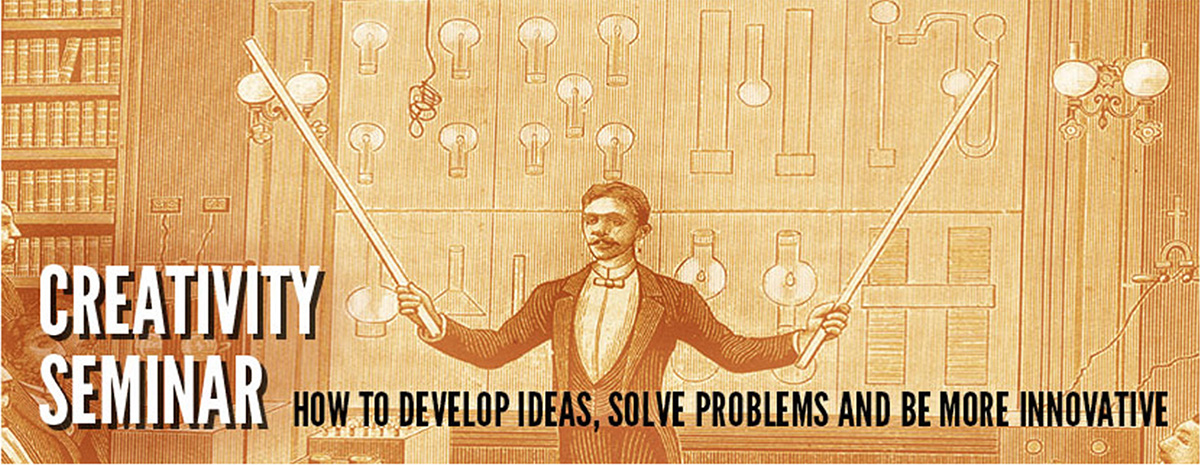The goal of creativity is to generate new ideas, by seeing things from a new perspective. But a group that's all the same is doomed to think the same — and to tread the same path they've trod before. The point in forming a creative team isn't to fill it with those who will "fit in," but to fill it with those who will challenge the team in a constructive way.
 |
| INVITE SOMEONE WHO'S DIFFERENT. |
Conformity is the enemy of collaboration. When all members are alike, they often reach agreement quickly -- and although that may seem to be an asset, it is more often a liability. Only later might they realize that they lost a chance to see things differently and to create something truly groundbreaking, by tapping the experience of outside experts.
Business leaders: include, for instance, a historian. Engineers: include a social worker. Writers: include a visual artist. Lawyers: include a psychologist. Code developers: include a translator of other codes, a musician. Unusual connections produce exciting results; Steve Jobs said that innovation occurs at the intersection of technology and the arts.
Even engaging a contrarian or strong critic who disagrees with a group can be surprisingly useful. As Beth Comstock, Chief Marketing Officer at General Electric, writes in Harvard Business Review:
"Critics challenge assumptions and are usually very passionate. Invite them in; hear them out. You may be surprised by how much you learn, and also by how thinking about a problem from a different perspective can refresh and energize your own ideas. In the best case scenario, your harsh critic is now your teammate, and not incidentally, will own the particular issue you asked them about. Turning a critic into a passionate advocate and supporter is a great goal in innovation."Diversity trumps ability. Outsiders arrive with skills, experiences and ways of operating that insiders might not possess. The author of "The Difference," Scott E. Page, Professor of Complex Systems, Politics and Economics at the University of Michigan understands the creative opportunity in including a unique team member.
"An outsider can be very helpful, not because they are necessarily smarter than you, but because they are different than you. And this difference is in how they naturally or innately think about what is important when they see a problem or a situation. Diverse perspectives sometimes give you the equivalent of more brain power because they give you more search power. They give you more places you can look for ideas and solutions."A homogeneous collection of individuals is likely to be too cozy with each other; comfort is another enemy of creativity. What the group needs is stimulation, surprises and an unusual direction. A newcomer who's curious, and even playful, will be willing to say and ask anything -- sparking unexpected conversations.
A leading expert on innovation and corporate creativity, author and professor of Business Administration at Harvard Business School, Dorothy Leonard goes so far as to refer to this healthy dynamic as a visit from aliens:
“‘Aliens' come in with a different perspective than the organization or the profession has, which can be very helpful. 'Aliens' are useful because they see problems and opportunities with new eyes. 'Aliens' jar an organizational pattern of thinking, or an individual pattern of thinking. You have someone coming in asking naive or uncomfortable questions like, "Why do you do it that way?" It can cause a lot of discomfort if the members of a group don't understand that that is the function of the 'alien', and that it actually serves a very useful purpose."-----------------------------------------------------------------------------------------------------------------
Illustration, at top right, based on original engraving:
BENJAMIN FRANKLIN'S JUNTO
In 1727 Benjamin Franklin assembled a group of friends from various backgrounds to participate in a structured forum to discuss and debate topics of the day: business, politics, philosophy and morals. He called the group Junto, from the Latin root for "join." But none of the members were like him. Franklin deliberately selected individuals from diverse occupations and disciplines -- scriveners, merchants, bibliophiles, surveyors, cabinet makers, astrologers, cobblers and bartenders -- for he knew the discussion would be more wide-ranging, engaging and ultimately more productive with varied experiences and points of view. The meetings, Franklin said, “are to be conducted in the sincere spirit of inquiry after truth, without fondness for dispute or desire of victory." Franklin, a man of many talents, understood the benefits of diversity.BENJAMIN FRANKLIN'S JUNTO
